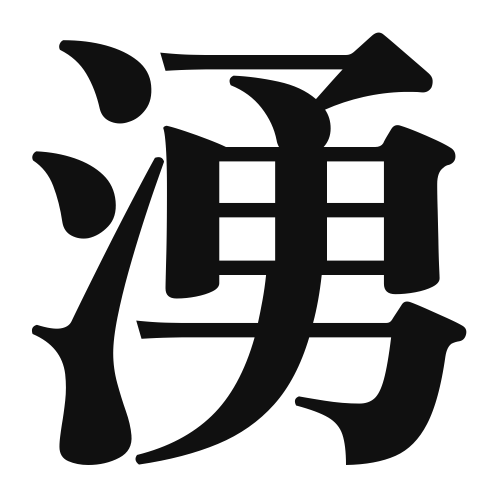1. Overview of Meaning
The kanji “湧” (yū) means “to spring up” or “to gush forth.” It is often used to describe the action of water bubbling up from a source, such as a spring or a well.
2. Formation and Radical
Formation of the Kanji: The kanji “湧” is a phonetic-ideographic character (形声文字). It combines the water radical (氵) on the left, indicating its relation to water, with the phonetic component “you” (煜) on the right, which contributes to its pronunciation.
Radical: The radical of “湧” is 氵, which is the water radical, commonly found in kanji related to water or liquid.
3. Examples of Usage
Common Words and Phrases:
- 湧き水 (わきみず, wakimizu) – spring water
- 湧き出る (わきでる, wakideru) – to gush out
Example Sentences in Daily Conversation:
- 山の中に美しい湧き水がある。 (There is beautiful spring water in the mountains.)
- 温泉が湧き出る場所を見つけた。 (I found a place where hot springs gush out.)
4. Synonyms and Antonyms
Similar Kanji:
- 流 (りゅう, ryū) – to flow; while both involve water, “流” emphasizes movement, whereas “湧” emphasizes the source of water.
Antonyms:
- 干 (ひ, hi) – to dry; this kanji represents the opposite of “湧,” indicating a lack of water.
5. Cultural and Historical Background
Relation to Japanese Culture: The concept of water springing forth is significant in Japanese culture, often associated with purity and life. Springs are considered sacred in Shinto beliefs.
Proverbs and Idioms:
- 湧き出るようなアイデア (wakideru you na aidea) – ideas that spring forth, used to describe a burst of creativity.
